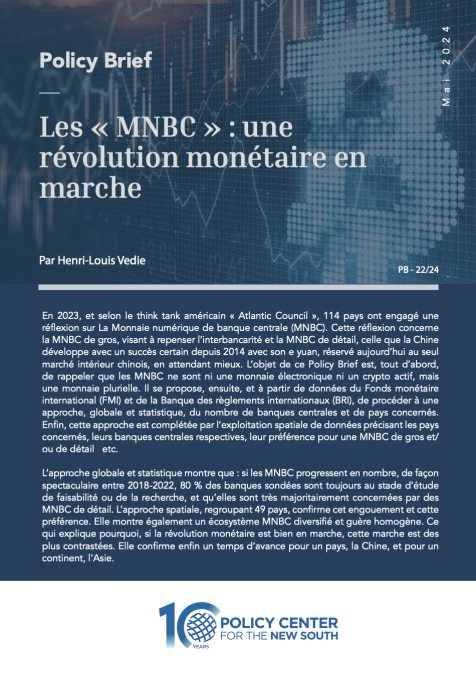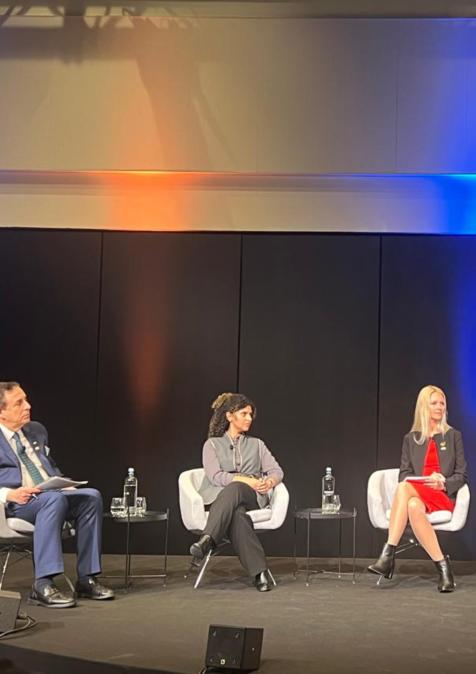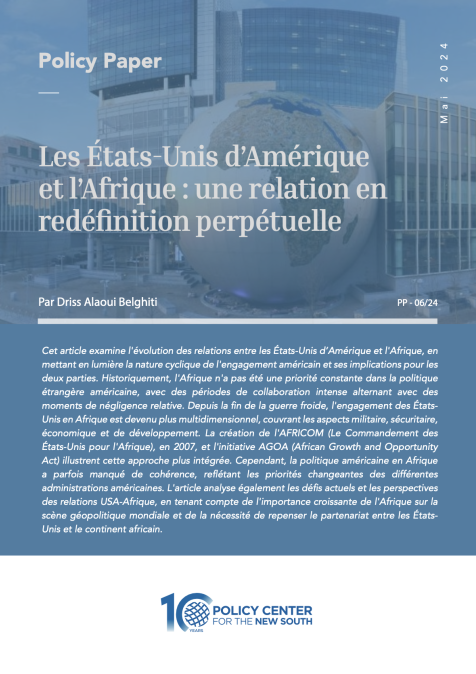Publications /
Opinion
You can call him a poster child, a symbol—forgotten, deprived, but determined. A boy searching for freedom, for equality, for a world without racism and chances for all. Liberated of chains. Free to breath and to dream. He became a football player, a great one, the first African football professional, honored as the best African, European and world football player in the same year (1995).
Then came the Knighthood, and he was honored by the fans as Lord George. He was an alert and curious young talent, tuned for life and football by another thoughtful man, a white French football coach, Arsène Wenger, who became “a father figure” to the African professional, with whom he won the French cup in 1991. “He regarded me as his son”, said Weah. Wenger, coach of AS Monaco, the first European chapter for Weah, did not predict that his young, initially a somehow shy and hesitant recruit from the Cameroon club “Tonnerre Yaoundé”, would one day write world history by taking destiny into his hand and becoming President of Liberia in January 2018.
For Wenger, more than 20 years manager of “Arsenal” (London), the life and career of his African pupil is just “an unbelievable story” that sounds like a Hollywood movie- George and Arsène, Black and white, football and football. They symbolize the spirit of sport and the dream for all kids. A global dream, connected to hope: kicking with Messi, dressing up with Ronaldo, copying Weah. The coach always knew though that George was different from most of his colleagues, also off the field. He was “mentally strong and absolutely convinced” that he was not on earth to only play football. According to Wenger, Weah “was on a mission”. During the 1990s, when Liberia was suffering from a civil war, the kid did not hide his tears when he spoke to his coach about the terrible loss of lives in his country, estimated 250 000. One day, he would get involved and stop the self-destruction of his people. You bet. He knew what to do, how to advance- in order to enter politics, he needed to know more, much more, about government, economics, foreign affairs. Politics was not on the same level as corner-kicks or off side rules. You have to deal with major international or national problems, the Ebola virus, for example, which decimated his people from 2014 to 2016. His predecessor in the Presidency, Ellen Johnson Sirleaf, was prepared, at least intellectually. The Africa’s first elected female as Head of State is a Harvard educated economist, who shared the 2011 Nobel Peace Prize.
The football genius did not, after his retirement from the game, waste any time. At age 40, he received his High school diploma. His ambition and discipline did not stop here: at De Vry University in Florida, he obtained a bachelor degree in business management in 2011, and a Master’s degree in public administration two years later. His first attempt to take power in his country failed. He lost not one, but two elections to Mrs Sirleaf. Again he did not waver, but persisted in his dream just as he did with his football career. After his arrival from Africa, Wenger had the 22 year old wait for six months before including him permanently in his team. Weah never doubted himself, or his coach. Weah knows that other athletes had attempted to turn fame and wealth into political power and that most of them failed. But he would not lose, he could not lose. He was Weah, determined, ambitious, disciplined. Smart, street-smart, well prepared for combat. He survived poverty, he would win on the pitch in politics.
Remember Jack Kemp, a famous quarterback in American football? He tried in 1988 to be elected candidate for the Presidency, and was rejected. He tried again, as running mate of Bob Dole who challenged Bill Clinton for the White House. Kemp failed again. Remember the bodybuilding giant Arnold Schwarzenegger? He would have loved to become President of the United States of America, but since he was an immigrant, born in Austria, he could not be elected into the White House. To manage America, you need an American birth certificate. NOT necessarily decency, wisdom, honesty or a human spirit, as it is proved by the recently elected President whose grandfather was an immigrant of German descent. Possibly Trump forgot his heritage. The US President never worked as a golf professional, but he did spend more than 40 million dollars of government funding for his golf weekends and 40 million for more than 80 golf outings in his first year at the White House. Whenever and wherever he plays, his advisers, his secret service, the limousine, the bullet proof, his cook, have to follow the boss, codename” Potus”, travelling in Air Force One- his official giant plane, the code to trigger a nuclear war included.
Schwarzenegger, who did not vote for Donald Trump, his fellow Republican, was elected to be Governor of California and responsible for one of the strongest economies of the world that count 33 milllion citizens. Was the former bodybuilder a failure? Certainly not. At least not worse than those who turned from Wall street bankers or real estate billionaires into politicians, active in the US Senate or the House of Representatives. Even a former member of the US Navy’s underwater demolition team during the Vietnam war convinced the voters of his State, Missouri, to vote him into office of Governor in 1999. Jesse Ventura was famous as an athlete. Is wrestling a sport or a brutal form of circus? As a professional wrestler Ventura was known as” the body”. He worked for a time as bodyguard for the ‘Rolling Stones”, rode Harley Davidson’s with Arnold Schwarzenegger, with whom he worked as actor in the film “Predator”. After one of his wrestling matches, a spectator promised he would be willing to support Ventura’s campaign financially, if the wrestler ever tried to be elected President of the United States. Who was the generous fan? Donald Trump. Possibly Barack Obama, the most decent and relaxed American President in modern times, teamed up for his weekly workouts, on the basketball courts of Washington DC, with basketball professional Bill Bradley, for 18 years a respected US Senator .The Democrat tried to be chosen Presidential candidate of his party, but unlike George Weah, he failed. Quite many American athletes try again and again to turn their fame into political power.
European athletes hardly ever try, since the party system, often rigid and without flexibility, does not offer to famous actors (like Ronald Reagan in the US), authors, athletes or artists, a political future, a secure seat in Parliament or a job in government- a marathon runner, swimmer or ski jumper is not automatically a smart, informed and capable politician. There are nonetheless few exceptions. The 110 meters French hurdler Guy Drut, who won an Olympic gold in Montreal in 1976, was elected mayor of a small town, and after he won a seat for the Conservative Party of President Jacques Chirac, he was appointed minister of youth and sport by Prime minister Alain Juppé. Today Drut is a member of the advisory council which prepares the Olympics in Paris 2024. His fellow athlete, Sebastian Coe, 1500 meters gold medal winner (in 1980 and 1984) was elected as a member of the Conservative Party to the British Parliament. He never attempted a career in government. Today Sebastian Coe is managing the International Athletics Federation, which involves without any doubt a busy schedule, a lot of responsibilities, but no comparison with the work George Weah is facing. From now on, the former athlete may not have a second anymore to play football with his Veterans team in Monrovia, the “Alpha Oldtimers””.
The country suffers poverty and the expectations are high. The young generation dreams of jobs, of social stability, and demands a government which will produce a better future, and not just tell promises. The youth identifies with Weah. He is a child of misery, born and raised in a slum. Yes, a slum, he was deprived of food and clothing. No doctors, no police. Just poverty. His wealth and fame did not erase his memories. The words of Martin Luther King, the icon of Afro-Americans, may have inspired the former football star as well. ”I have a dream”, a dream of justice and equality. No doubt, the meeting of Weah with Nelson Mandela, a giant of Africa, who sacrificed his own freedom to liberate his people, also left its marks. Weah’s work ethics, discipline and ambition, which impressed his coach Arsène Wenger three decades ago, are much needed in his newest challenge. Weah is aware of the expectations. He invited Wenger, ”the man who showed (him) love when racism was at his peak”, to witness the historic event in Monrovia as his guest of honor. The coach certainly would have accepted. But his team is fighting to qualify for the lucrative “European championship”, a task more important for the club owners than a historic inauguration somewhere in Africa. Wenger though insisted on taking a few minutes off from training and praised his African son via global TV : ”I would like to say this guy is an example for everybody who plays football today and for all the players”. Will Messi be President of Argentina one day? Ronaldo Prime Minister of Portugal? Or has destiny created only one George Weah, selected to lead as President his people to a glorious future?
Georges Weah is an exception and a symbol at the same time. Weah did not need generals to help him into power, he managed to convince the citizens and to reach its goal with his fame as athlete, his honesty and his intelligence. In his moments of glory, and as a sign of his maturity and decency, he did not forget Arsen Wenger, his old coach, the man who believed not only in his talent as football player but also in him and his mental strength. Democracy in Africa has a future.









